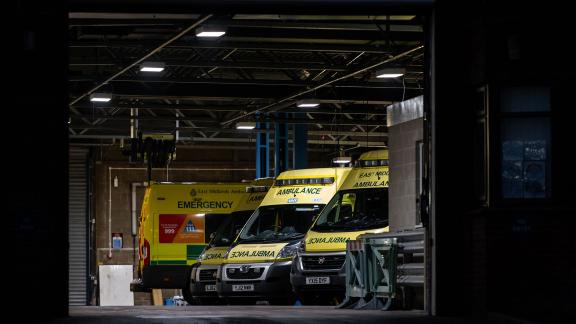NHS facing sustained winter pressures as flu and norovirus reach new peak

- There were an average of 2,226 patients in hospital with flu each day last week, up 41% from 1,582 the previous week. This is much higher than the 1,291 during the same week last year;
- Some 688 adults were in hospital with norovirus every day last week on average, up by 57% from 438 the previous week;
- An average of 49,212 NHS staff were off sick last week, up nearly 4% from 47,468 the previous week;
- Some 13,620 beds each day were filled with patients no longer meeting the criteria to reside in hospital on average last week, down around 6% from 14,436 the previous week; and
- A total of 103,688 beds were available on an average day last week, with bed occupancy at 94.8% compared to 94.3% for the previous week.
Responding to NHS England’s weekly urgent and emergency care situation report Rory Deighton, director of the NHS Confederation’s Acute Network, said:
“It is clear that the NHS remains under an incredible amount of pressure, with flu and norovirus at their highest levels so far this winter and nearly 50,000 staff absent each day last week.
“But this is exacerbated by the patient flow problems running through health and care systems from ambulance handover delays at A&E to patients stuck in hospital when they are well enough to leave. The focus on ambulance handovers this winter has meant NHS leaders and their staff have put in an incredible amount of work to keep patients safe, but ongoing issues in social care keeping patients from being discharged from hospital have not gone away.
“Our members are concerned that the funding pressure across local government is leaving them unable to offer care packages to help people move out of hospital.
“With further reports of local authorities facing financial crisis there needs to be a continued focus on supporting councils and funding social care so that we can support the domiciliary care sector to manage the demand it is facing and ease the pressure on hospitals.
“The worsening of ambulance handover delays, increase in bed occupancy and delayed discharge problems shows that the hospitals are struggling to get patients through the front door and out the back. This is causing further delays for patients and frustrating staff who have already worked flat out through the pandemic and a year of industrial action and want to provide the best care possible to patients.”



